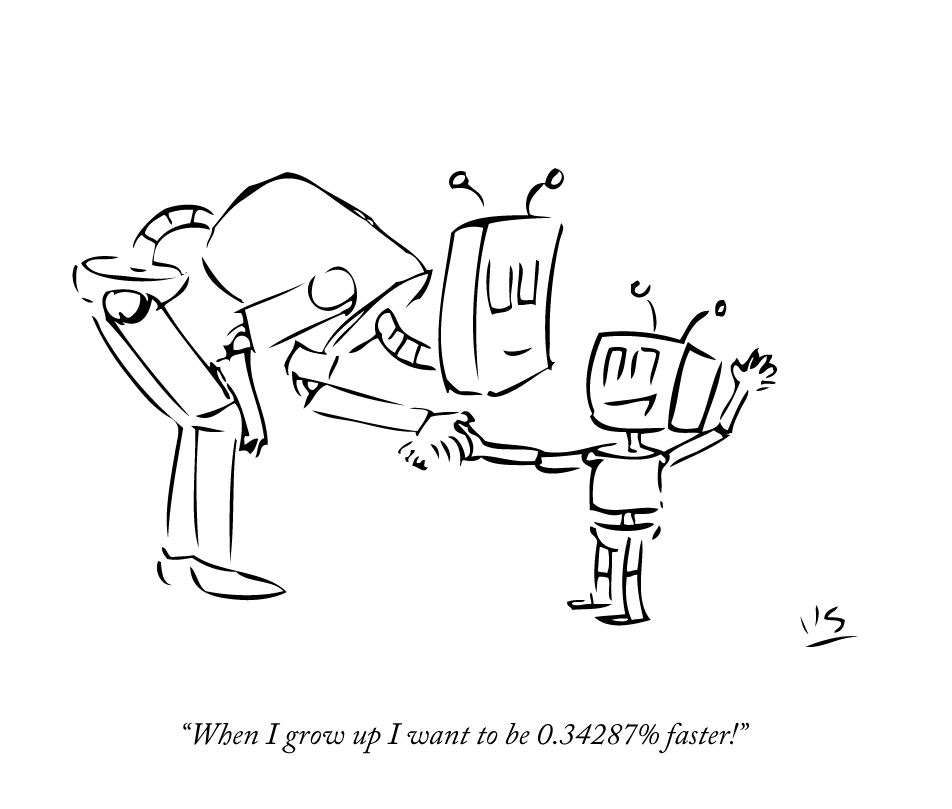Written by Vasanth Sarathy, Computer Science Ph.D. Candidate
“I think I want to go to grad school. Does that sound crazy?” This was a question I asked one of my mentors about a year and a half ago. I was about to quit my job as a lawyer, a job that I had held for nearly a decade. I wanted to switch careers because I really missed learning and teaching science and math, and I wanted to exercise some creative control over my life. I thought that a career in academia was the right way to go. “Unusual, yes. Crazy, no!” was the response I got from my mentor. His response gave me the confidence to go ahead and follow my heart and pursue this career track. Of course, to pursue said career, I needed a Ph.D., and to get a Ph.D. I needed to get in to and graduate from a strong research program. Thus began my search for schools.
I decided to restrict my search to the Boston area. This was for personal reasons and because I think Boston is an awesome city! I also had a general idea of what subject I wanted to research. I am deeply interested in understanding the cognitive process of creativity and insight. I learned very quickly that studying these types of questions in cognitive science involves a highly multi-disciplinary effort approached from many different angles: neuroscience and learning about the brain activity; psychology and learning about the human thought process; artificial intelligence/robotics and learning by recreating cognitive architectures in computer systems; philosophy and thinking about why we think a certain way; and mathematics, the language with which to bring these disciplines together.
Each of the schools I looked into offered some combination of these disciplines. I chose Tufts because it provided an integrated approach to studying cognitive science. Not only does Tufts have some of the most well known names in each of the above fields, they all, in full earnest, work together under a coordinated Cognitive Science program. Moreover, I could pursue a joint Ph.D. in Computer Science and Cognitive Science. I felt this combination was powerful and would help me acquire a breadth of knowledge in less familiar fields while deepening my expertise in my primary area of interest: computer science. In the Boston area, this type of program is unique to Tufts. While some schools have cognitive and brain science programs many are limited to the combination of neuroscience and computational methods.
After confirming that I was on the right track, my mentor (during our “am I crazy?” conversation) advised me to reach out to faculty whose research I found interesting. This was a brilliant piece of advice. I sent emails and reached out to several professors in various schools to ask about their research. Only a few replied, which was understandable, given the madness that was the November application season. However, I was able to meet with some of them and learned not only about their research, but also whether or not I could see myself working with them for a long time. The professors at Tufts are highly motivated and driven, while simultaneously supportive–they truly care for their students. If the students are committed, the professors will match their commitment. So, needless to say, another big reason for applying and ultimately choosing Tufts was its faculty, and particularly my research advisor. Meeting via email and face-to-face with my then future-advisor helped me get a better sense of how this important professional relationship might play out.
There are so many more reasons I like Tufts, and I cannot do justice in a short blog post, but one takeaway is that being both a nurturing liberal arts school and competitive research institution, Tufts affords some great opportunities to do good work, grow in your career, and remain happy while doing so. Go Jumbos!

